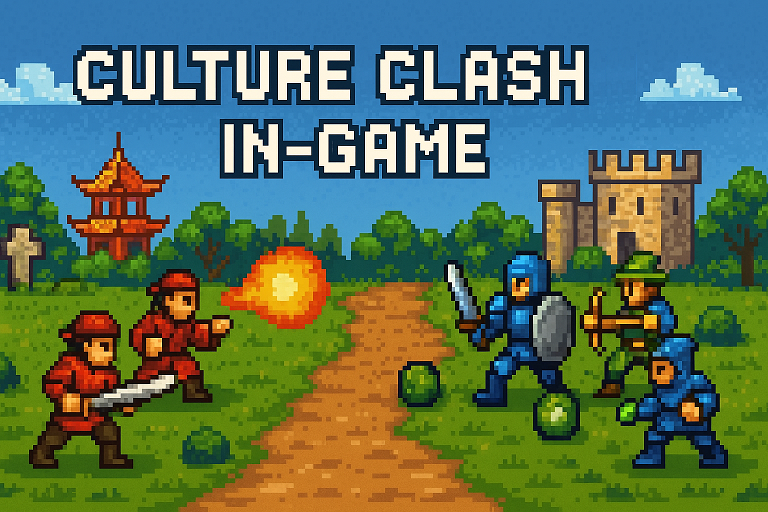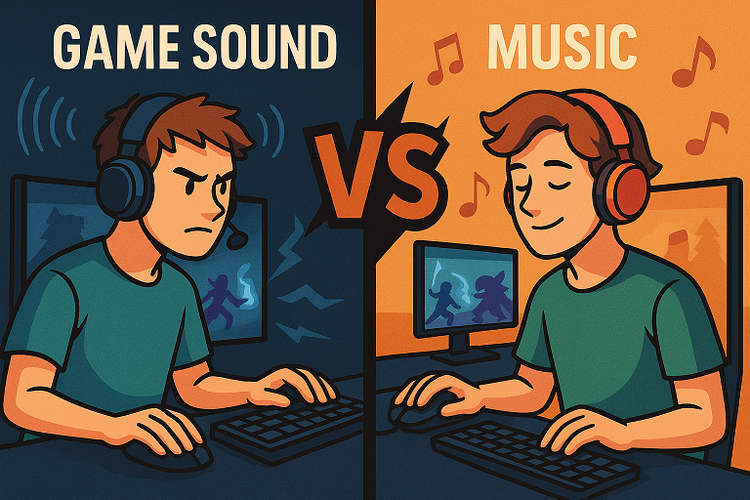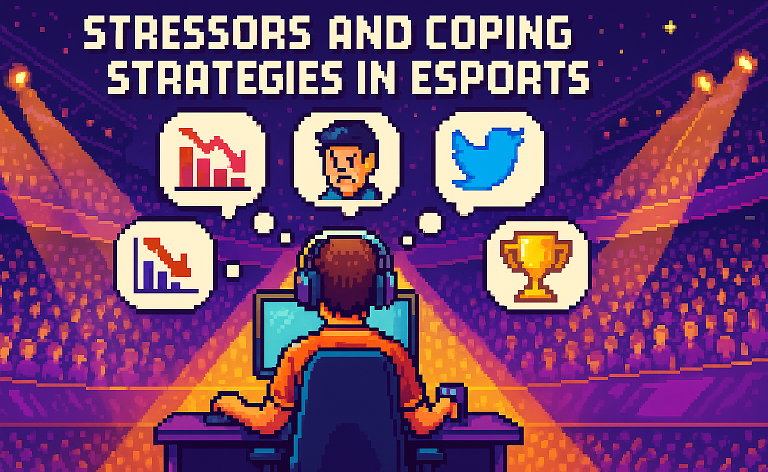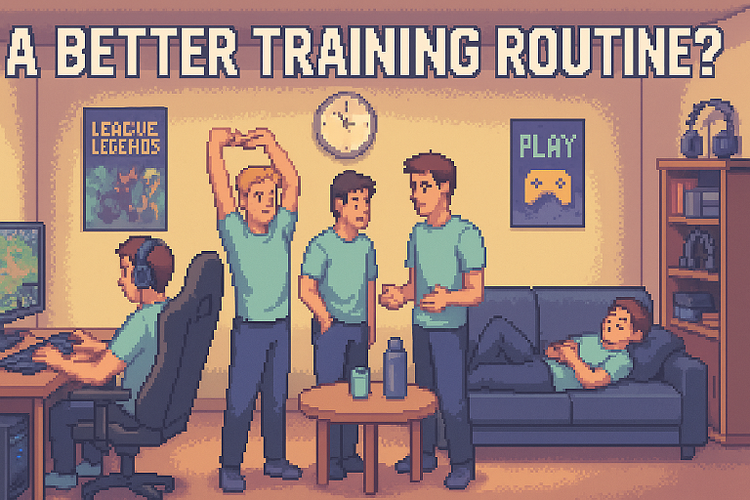Guest Episode | Théo 'PtitDrogo' Freydièr: Managing Expectations
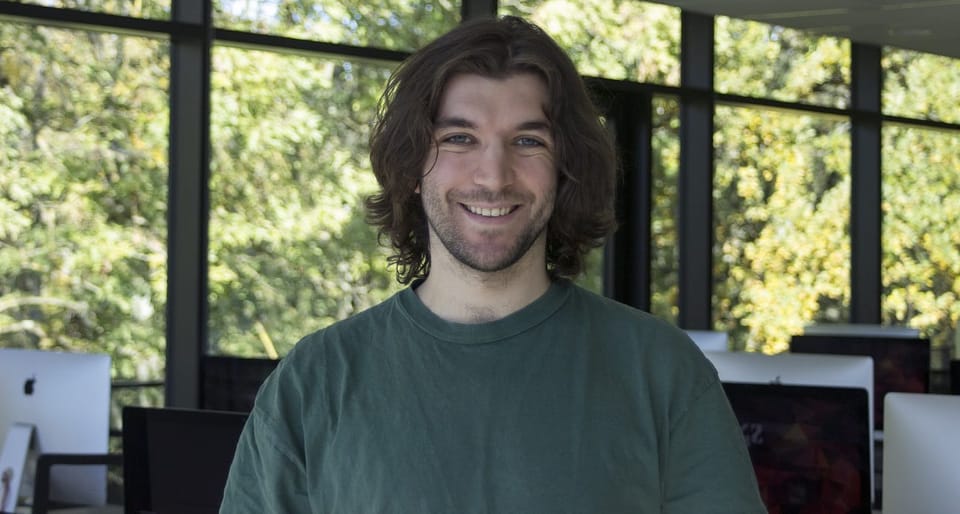
Hello everyone, and welcome to a brand new episode of Gaming Science.
Today's episode is a very special one for two reasons: one, it is (the first ever) guest episode on this newsletter, and two - more importantly - it is written by Théo 'PtitDrogo' Freydière. For all you StarCraft II fans out there, PtitDrogo is no stranger, and I'm very exited and thankful to have him contribute to this newsletter. As a former progamer, he opens up the science-centered approach of the newsletter and add a lot of value by introducing his practical view.
As we have seen in earlier episodes (here and here), career transitions are especially hard for Esports athletes because the skills they acquire during their competitive years badly transfer into other industries. So I'm very excited to hear about his journey so far. Without further ado, let's hear what he has to say.
My name is Théo but I’m better known by the nickname PtitDrogo. I was a professional Starcraft II player from 2014 - 2022 and I've been studying software engineering since 2023.
As a fairly competitive person, I’ve always thought that if I could be a pro gamer (someone who has to be among the best to make a living), it would be somewhat trivial to learn a new craft that only required me to be average. Add to that the many fans I would talk to who would tell me that StarCraft is just so much harder than anything else, and you start to believe that you’re a very special person who can do anything he wants super easily.
I do believe gamers in general will naturally develop a lot of skills and habits that are helpful in other endeavors. I’ve been a League of Legend enthusiast this past year and I absolutely love how prevalent the “grind” mentality is, this idea that as long as you play 14 hours per day you can ascend and get to challenger, the highest rank. I think modern games, with their match making systems that ensure a 50% win rate and addictive gameplay loops, molds gamers into beings that are very at ease with the idea of throwing hours of their life at something if it means being good at it.
However, gaming is not studying, and since I’ve started exploring software engineering, I’ve had to face a lot of harsh realities.
⚖️ Managing Expectations
Honestly one of the most important skills to be a better gamer is to have expectations that line up as much as possible with reality. Looking at a situation and knowing exactly what to expect out of it is, in my opinion, more important than speed or mechanics. I’m talking about knowing if you are supposed to be aggressive or defensive in any given situation, and how much damage you should do/take. Or to use magic terms from the legendary 1999 article, “who is the beatdown?”
The thing about expectations is that you have to try and see what happens to be able to build them. The hardest part of all in my opinion is to keep trying new things even after you have found something that “works”. Players will stay in the same league their entire life because they’ve gotten comfortable with a decision tree system that only works to a certain skill level, even pros.
The very nice thing with gaming is that we don’t have to reinvent the wheel, and we have the incredible ability to watch other people play and discover brand new paths that would have taken us an extremely long time to even conceive of ourselves. When I used to coach people I would always tell them to just copy the pros, which is relatively not that hard, considering the fact that at the end of the day you are playing the same game.
Imagine my shock then when on the 1st of January 2023, I decide I will learn programming by myself, following tutorials online, and that it will be easy because I am an amazing pro gamer who is the best and everybody knows it.
After some trial and error, I discovered CS50, an online computer science course from Havard taught by David Malan. I cannot recommend it enough, David is an absolutely amazing pedagogue and I have learned much faster than I ever would have with any other courses.
Over the next two months, two things would happen. I would learn a lot about coding and Python, and I would feel very bad about it.
When you win a competitive online game, you will usually be rewarded with virtual points signifying progress, and you can even look at how many of these points your opponents had, and if they happened to have a lot of them, you can feel even better about yourself because you know you won against a good player.
That’s the funny part, at no point does the gamer decide by himself if he played well or if he increased his skill level. The only way the gamer knows if he is improving is by looking at virtual points, MMR, Elo, rating, and the more he has the happier he is.
This is obviously a joke and while I was already aware of the absurdity of this I am a little bit embarrassed at how unequipped I was when taken out of a structured loop that clearly indicated perceived progress.
By all means, I was actually learning fairly quickly, but I had no idea and no point of reference, so whenever I finally internalized a new concept and solved a new problem, all I could see now was that I understood that it wasn’t even that difficult so I didn’t feel good about it (No MMR gain, SAD!). Add to that the fact that I was alone. I had no one I could compare myself to, so I ended up constantly fighting a ghostly version of myself that could have done better than me and learned faster. It was just hard to imagine that someone could have been slower than me, since coding problems are very good at making you feel stupid.
The number 1 thought running through my mind at all times while trying to learn anything was “I should be learning faster than this, it is taking me way too long to solve these problems.” A clear case of expectations not matching reality! In a game, I would have been very quick to realize I needed to play differently since I could compare myself to other players, but not here.
I completed the entire Python course in about three months and then stopped doing anything code related because I felt like I had a completely red match history, full of losses, because I hadn’t completed it in two months.
Afterwards I had to bite the bullet and look into schools, and went with 42, an unusual school based on peer to peer learning. You have to succeed in an infamously difficult month-long contest to get in.
I didn’t expect how drastic the change would be to my relationship with learning.
Picture a building with no teachers, 200 participants and 200 computers, a bunch of projects, and by the end of one month, only the 60 most successful students get into the school (I'm summarizing, the school greatly values students who helps one another so how helpful you were to your fellow man feeds into the definition of “success”).
I suddenly had a truckload of reality to base my expectations on. I struggled a lot at first, but so did everyone around me, so when it took me an entire week to even start to understand pointers in C, instead of getting mad at myself I couldn’t ignore that everyone around me was also lost in the sauce.
I wound up succeeding and now I’ve been studying at this school since November. One interesting thing I’ve found is that most of my time (around 80%) is actually spent studying alone, “grinding,” really not all that different from what I was doing as a pro gamer. But the fact that I’m surrounded by humans who I can talk to and watch engage with the material every time I feel stupid is making a world of a difference. I am now very confident in my future and my ability to learn enough to be a very good programmer.
If there’s any advice I’d give to gamers, it would be to never stop learning from others. It really is a multiplier to the work you are doing.
When you can directly add the very different experience of others to your own, it not only saves you a ton of time but will also potentially make you stop trying to do things that are really not possible (in the past year I also went from gold to master in league of legends and let me tell you it took me a long time to really understand that there is such a thing as a losing match up in the top lane and that sometime it's ok to play defensive and I had to watch top player playing way more scared than I would to realize that).
It sounds obvious writing it down now, as it's the same way I got really good at StarCraft, but it’s incredibly easy to think you have it figured out and that you don’t have to bother with it anymore.
That’s it for me, thank you for reading and have fun in your next games!
Huge thanks again to Théo for his writing and inside. And as always, see you guys next week. Cheers,
Christian 🙂
Join over 250+ (🤯) Gaming Science subscribers and become smarter every week.
"I love this type of content, thank you Chris."

